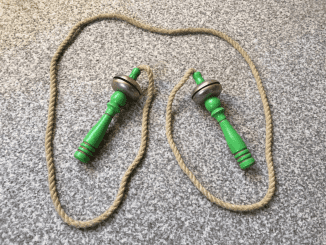Puzzles and riddles are excellent ways to sharpen your mind, test your creativity, and, most importantly, have some fun. Today, let’s dive into a classic riddle that looks simple at first glance but has a clever twist. Here’s the riddle for you:
“I am an odd number. Take away one letter, and I become even.”

It sounds straightforward, right? But be careful—this riddle is designed to trip you up if you overlook the small details. Can you figure it out? Let’s break down the answer step-by-step, and if you think you know it, feel free to drop your guess in the comments!
Common Mistakes in Solving This Riddle
Riddles like this one are often tricky because they use words creatively, not just numbers. One common mistake people make is trying to solve it purely as a math problem. When we see “odd number,” we start thinking of numbers like 1, 3, 5, and 7, and imagine how removing a letter might turn them even. But this riddle isn’t straightforward math; it’s a wordplay challenge that requires creative thinking.
Other missteps include:
- Thinking Only in Numbers: Many assume they need to manipulate the number itself. But this riddle plays with words, so focusing only on numbers can lead you astray.
- Ignoring Word Form: Since the riddle says “take away one letter,” it’s important to think about the word’s spelling, not just the number itself.
- Overlooking Language Tricks: Riddles like this often play with language, so a purely logical approach may miss the mark.
With these common errors in mind, let’s solve this riddle together.
Step-by-Step Guide to Cracking the Riddle
Ready to uncover the answer? Let’s go through it methodically. Instead of focusing only on numbers, let’s consider the words associated with them. Here’s how you can solve it:
Step 1: Understand the Clues
The riddle begins with “I am an odd number,” so we know we’re looking at a number that doesn’t divide evenly by two. Odd numbers include 1, 3, 5, 7, and so on.
The next line says, “Take away one letter, and I become even.” This is the key clue. We’re not supposed to do any math here; rather, we’re looking at the word for the number itself. By removing a specific letter, we’ll turn it into something else.
Step 2: Look at Each Odd Number’s Spelling
Let’s examine the word forms of some odd numbers to see if removing a letter might make sense:
- One: Removing any letter here doesn’t yield anything related to “even.”
- Three: No letter here leads us to “even.”
- Five: No luck here, either.
- Seven: Aha! If we take away the “s” from “seven,” we’re left with “even.”
This is the breakthrough moment in solving the riddle. By removing the “s” from “seven,” we’re left with the word “even.” The answer is “seven.”
Final Check: Does the Answer Make Sense?
To be sure, let’s go back to the riddle and see if this answer satisfies both parts:
- “I am an odd number.” Yes, seven is an odd number.
- “Take away one letter, and I become even.” If we remove the “s” from “seven,” we’re left with “even.”
The answer is perfect. The number we’re looking for is seven.

Why Small Details Make All the Difference in Riddles
Riddles like this teach us an important lesson: small details can make a big difference. Often, we overlook words and assume a straightforward math problem, especially when terms like “odd” and “even” are involved. But in this case, the trick lay in the language, not the numbers.
This riddle plays on our natural tendency to look for numerical solutions first, forcing us to pause and rethink the words themselves. By focusing on the word “seven” rather than the number 7, we reveal the hidden clue. Riddles like these challenge us to question assumptions and think creatively.
Your Turn: Did You Solve the Riddle?
Did you manage to solve the riddle before reading the explanation? If so, great job! If not, don’t worry—this one has stumped plenty of people. The beauty of riddles like this is in the “aha” moment when the answer clicks. Now that you know, why not challenge a friend or family member and see if they can figure it out?
Share your thoughts in the comments below! Did you guess “seven,” or did you have a different answer? And if you have other favorite riddles, drop them below to keep the fun going. Riddles are entertaining and also sharpen our thinking skills, reminding us to look beyond the obvious.
Conclusion: The Power of Words and Creative Thinking
Riddles like “I am an odd number. Take away one letter, and I become even” remind us of the power of words and the joy of creative thinking. They encourage us to slow down, think deeply, and embrace that spark of curiosity. Solving riddles can improve our logical thinking, attention to detail, and even our patience—skills that benefit us in countless ways in daily life.
If you enjoyed solving this puzzle, there’s a world of riddles waiting to be explored. Keep challenging yourself, as each riddle will push you to think in new ways. And the next time you encounter a puzzle that seems impossible, remember this one and remind yourself that sometimes, the answer is right there—you just have to see it differently.


